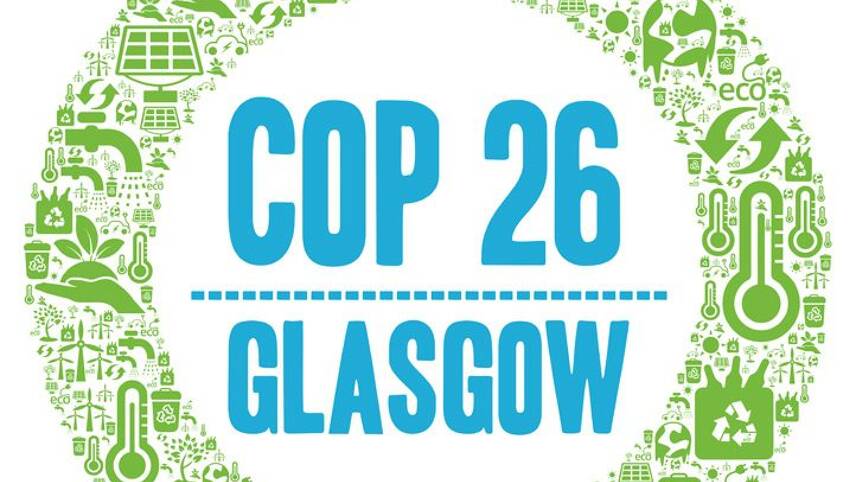Register for free and continue reading
Join our growing army of changemakers and get unlimited access to our premium content

New analysis from the Energy and Climate Intelligence Unit (ECIU)’s Net-Zero Tracker has found that 53% of global GDP is now covered by an intended or actual net-zero commitment
The COP26 Race to Zero campaign will officially launch today, to be delivered by the UN High Level “climate champions” the UK and Chile. The latter was meant to have hosted the last COP summit, but it was moved to Madrid following protests and civil unrest.
The campaign is designed to mobilise renewed levels of leadership from businesses, cities, regions and nations to spur a zero-carbon recovery that commits more national governments to set net-zero targets.
Nations will be encouraged to deliver the largest global coalition of leaders. The UN-led initiative instructs nations to submit more ambitious Nationally Determined Contributions (NDC) that were created for the Paris Agreement.
According to the UN, the world is “way off-track” to deliver the aims of the Paris Agreement. Preliminary data for 2019 suggests that greenhouse gas emissions increased globally in 2019 and carbon emissions from fossil fuels grew by more than 0.5% last year. The Race to Zero campaign will encourage renewed commitments to reaching the 1.5C target of the Paris Agreement.
At a corporate level, around 1,000 businesses with revenues totalling more than $4.7trn are backing the commitment. The UNFCC claims around a quarter of these businesses have targets aligned to net-zero. They will add to the 458 cities, 505 universities and 24 regions committed to the campaign.
Participants will have to submit net-zero roadmaps ahead of the COP26 conference next year. Plans must include interim targets on the trajectory towards net-zero as well as meeting select criteria from the University of Oxford.
New commitments to the campaign have arrived from the likes of H&M, Diageo and Rolls Royce.
UN climate change executive secretary, Patricia Espinosa said: “Complementing the urgent need for nations to submit NDCs this year, Race to Zero is not a campaign of the future, but a campaign of today,” she said. “That’s why all members are demonstrating how they’re already in the race to zero, by publishing immediate plans by COP26 and setting interim targets in 2025 and 2030.”
Tracking net-zero
New analysis from the Energy and Climate Intelligence Unit (ECIU)’s Net-Zero Tracker has found that 53% of global GDP is now covered by an intended or actual net-zero commitment.
The Tracker shows that net-zero targets now cover 23% of global carbon emissions, and account for 2.6 billion people.
The ECIU’s international lead, Dr Alison Doig commented: “With the Race to Zero campaign the UN High-Level Climate Champions are firing the start gun on a race to the top on climate action. Their aim is to accelerate the groundswell of climate ambition we’re already seeing across the real economy as we invest in the recovery from the pandemic.
“This is not however about pushing climate action to some date in the future; no entity can reach net-zero in 2050 without starting now, and so it’s entirely sensible that in order to qualify for entry to the Race to Zero, participants will have to present delivery plans, including setting interim targets for the next decade, by the time COP26 opens in Glasgow next year.”
Prime Minister Boris Johnson confirmed that the postponed COP26 Climate conference would be moved to 1-12 November 2021, to allow more time to recover from the economic and travel impacts of the virus. The Prime Minister also called for renewed collaborative action on climate change.
The UK will still have to submit a new NDC, having submitted one for the Paris Agreement as part of the European Union and while pushing towards an 80% reduction in emissions by 2050, rather than the new net-zero target.
The Government’s climate advisory group, the Committee on Climate Change (CCC) has pushed back a report on the UK’s sixth carbon budget – which could form the basis of a new NDC – to December.
The Institute for New Economic Thinking’s (INET) senior fellow Adair Turner added: “It is technologically and economically possible for the whole world to reach net-zero emissions by mid-century, and essential in order to limit global warming to well below 2C.
“So it is heartening that an ever-widening range of leading countries, companies and cities are committing to that objective. The very fact that they do so will spur the investment and innovation needed to make the goal attainable.”
Matt Mace


Lets hope when the Institute for New Economic Thinking s (INET) senior fellow Adair Turner talks about technologically solutions he inclides initiatives to fix the ‘blue planet’?
If we are going to save humankind from an environmental disaster then we need to think differently about some of the solutions.
Some would say its all about prioritising our blue planet. Consider – a tree absorbs on average only 22 kg of carbon a year. A whale 32,000kgs by feeding on phytoplankton.
If we can raise phytoplankton levels by 1% that is equivalent to 2 billion trees.
So if we recognise the contribution of whales and their ocean food sources and raise their numbers by protecting and cleaning the oceans we have one of the biggest contributing solutions! We can avoid unproven costly and untested technological solutions, such as capturing carbon. https://www.weforum.org/agenda/2019/11/whales-carbon-capture-climate-change/